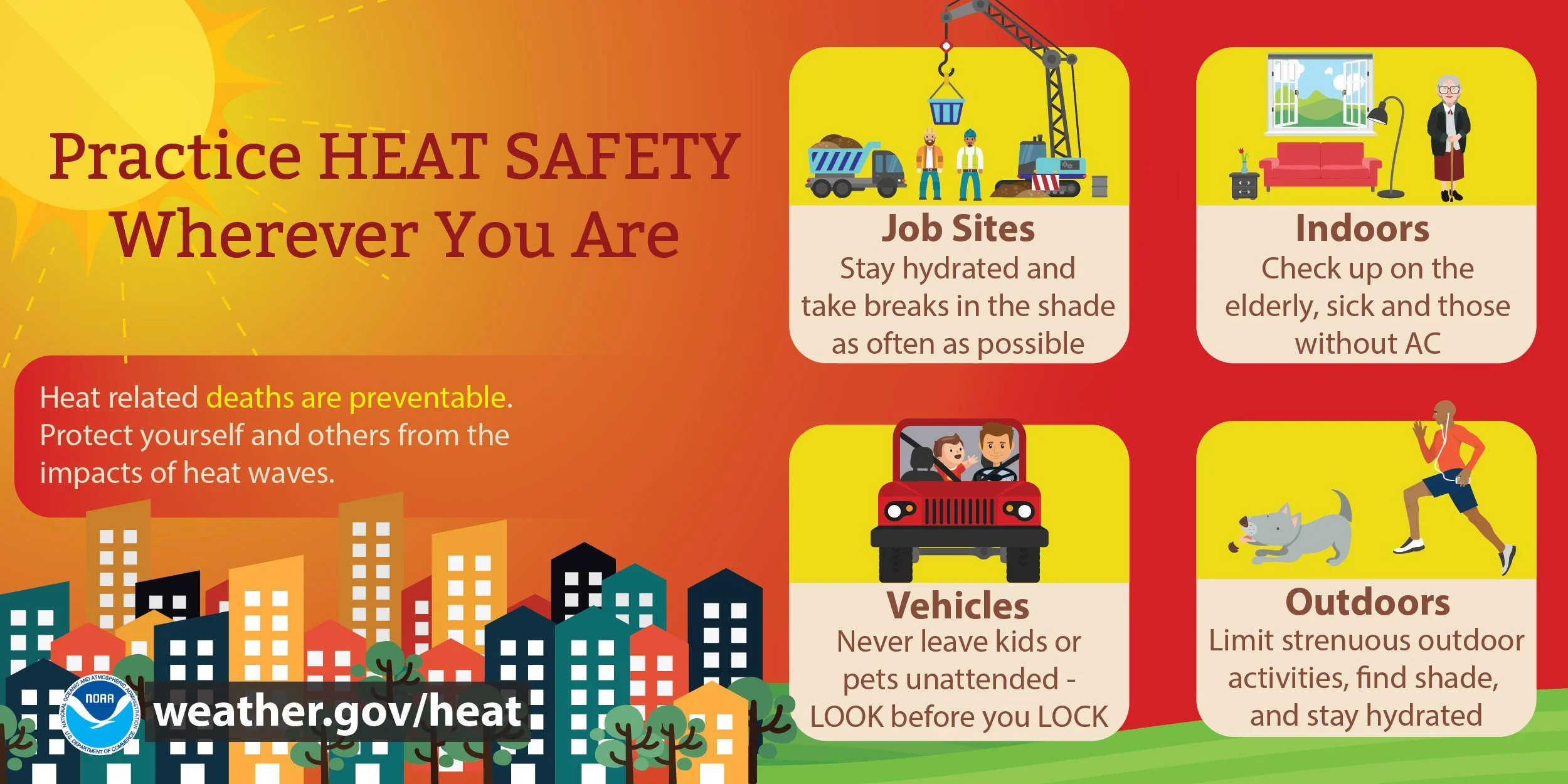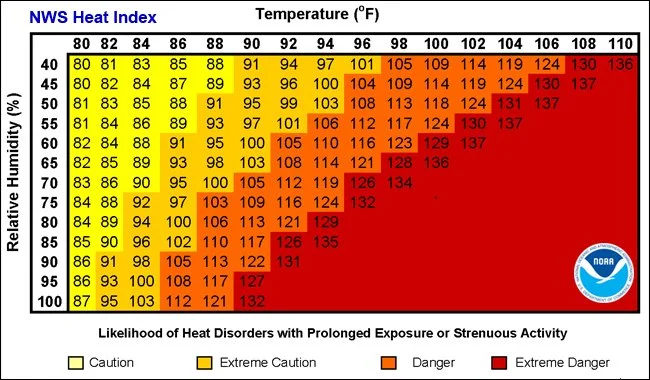Climate Change: Preparing for Health and Safety Challenges
From sweltering summer heatwaves to deadly ice storms, climate change is affecting the ways we should prepare for each season as climate change affects the earth in more ways than one. Although global warming is often the first thing that comes to mind, climate change affects the temperature in extreme ways on both sides, including extreme winters. Both are prevalent issues in today’s world and require important precautions to ensure health safety.
How has Climate Change Affected Summer Temperatures?
The average number of heat waves per year and their intensity has steadily increased since the 1960s to the 2020s. This means that heat waves are occurring more often in the United States from an average of two heat waves per year in the 60s to six per year in the 2010s and 2020s. This chart and these numbers will only continue to climb in the future as climate change continues.
Who is Most at Risk When Temperatures Rise?
Therefore, the number of people exposed to heat is growing, which is a dangerous fact due to the negative effects it poses on human health. Heat stress is the leading cause of weather-related deaths and can exacerbate underlying illnesses or cause heat stroke. In fact, between 2000 and 2019, there were approximately 489,000 heat-related deaths globally. This mainly affects tropical climates that are exposed to such high temperatures. The Natural Resources Defense Council found that nearly 210 million Americans live in counties that are vulnerable to these high temperatures. Extreme heat puts stress on the body because it attempts to regulate its processes and may result in damage to the heart and kidneys. The most vulnerable populations include older adults, young children, those with chronic illnesses, lower-income communities that lack access to adequate housing, and those who work outdoors. The United States has warmed by about 1.5 degrees since 1895, with most of the rise occurring in 1970. However, that number could rise to 5-10 degrees with increased emissions of carbon pollution.
What can YOU do?
Important actions can be taken in extreme heat to ensure safety. Follow these helpful tips to limit time spent outside in the heat.
Avoid going outside at the hottest time of the day.
Avoid doing strenuous activities outside.
Stay in the shade.
Keep your home cool by opening windows at night and cover windows during the day.
Keep your body cool by wearing light clothing.
Drink water regularly to stay hydrated.
Extreme Heat NH
How has Climate Change Affected Winter Temperatures?
A study by the Climate Program Office’s Modeling, Analysis, Predictions, and Projections program used satellite data from 1980 to 2021 and found that the stretching of strong winds surrounding the North Pole have increased with arctic amplification, or accelerated arctic warming associated with climate change. These winds are linked with extreme cold across Asia and North America. Basically, climate change not only causes global warming but extreme cold in the winters, like the record cold Texas temperatures in February 2021 which caused $80-130 billion in economic costs.
Who is Most at Risk?
Extreme cold can also be deadly, especially for the homeless. Lack of inadequate housing can lead to frostbite and death from the extreme temperatures. It can also cause power outages, leading to unsafe practices like running a generator for a long period of time or a gas stove. More attention needs to be paid to extreme cold preparedness for the excluded groups. For example, funding local initiatives that provide warming centers during cold emergencies or looking for opportunities to support people living in poverty.
How to Stay Safe When the Arctic Cold Strikes
Take extra caution as there is a higher risk of slip and fall injury
Be aware of winter weather alerts and what they mean
Stay off the roads and stay indoors
Prepare for power outages with a power generator
Stock up on food, water, and extra prescriptions
Wear proper clothing in the cold
To find a nearby cooling center during periods of extreme heat, residents can dial 2-1-1 or visit the 211 New Hampshire website. Once on the site, search for the category “Extreme Heat Cooling Centers” to view a list of available locations across the state. These centers offer a safe, air-conditioned space for those without access to adequate cooling at home—particularly vital for older adults, young children, individuals with chronic medical conditions, and people experiencing homelessness. The information is updated regularly during heat emergencies and includes details like operating hours, addresses, and any special services offered at each site.
Action is Needed
Climate change affects all populations. Take steps today to protect yourself, family, and your community—whether it is prepping your home for the next heatwave or stocking up for the deep freeze. Educate yourself by checking local emergency resources and educate others by sharing this post to spread the word about winter and summer safety.
New Hampshire State Hazard Mitigation Plan
As extreme heat events become more frequent and severe due to climate change, the New Hampshire State Hazard Mitigation Plan underscores the growing threat that high temperatures pose to public health, infrastructure, and vulnerable populations. While New Hampshire has historically been known for its cold winters, the state is now grappling with the reality that heatwaves—once rare—are becoming a regular and dangerous feature of summer.
The plan outlines how rising temperatures can strain energy systems, increase the risk of wildfires, degrade air quality, and endanger those without access to adequate cooling—particularly seniors, young children, low-income residents, and individuals with chronic health conditions. It emphasizes proactive strategies to mitigate these risks, including expanding access to cooling centers, improving public health outreach, adjusting building codes, and enhancing urban forestry.
By recognizing heat as an emerging hazard, the plan calls for coordinated action across state and local agencies to protect residents, build climate resilience, and access critical federal resources for hazard mitigation. As New Hampshire prepares for hotter summers ahead, this plan provides a roadmap for reducing heat-related risks and safeguarding communities statewide.





